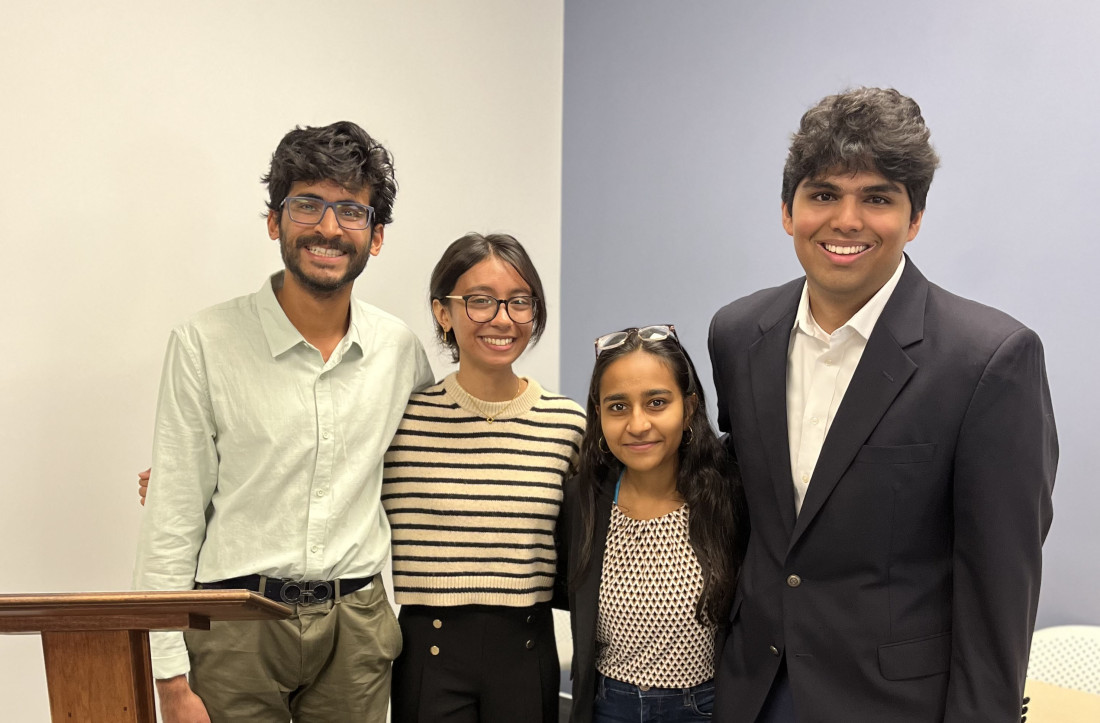LMI and UVA’s School of Data Science Challenge Student Teams to Tackle Health Equity

Few issues are more essential to the well-being of a society than ensuring that all people, regardless of background or socioeconomic status, are able to reach their full health potential.
However, in the United States and in many other countries across the globe, the goal of health equity has proven elusive.
That is why the consulting firm LMI and the University of Virginia’s School of Data Science collaborated to host a competition aimed at developing innovative, practical solutions that use artificial intelligence or machine learning to address different aspects of this critical need.
Called the Data Entrepreneurship Challenge, groups of two to four individuals were tasked with selecting a health equity topic, building a prototype AI solution to address it, creating a strategy to communicate and implement their new approach, and then, finally, presenting their proposal to a panel of judges.
"LMI's collaboration with UVA on the Data Entrepreneurship Challenge marks a new milestone for our long partnership and our efforts to always explore new ways to engage the student body," said Brant Horio, a senior fellow with LMI who helped organize the event. "The focus on health equity is extremely relevant and well aligned to LMI's mission for fostering innovation across government sectors."
While the rules only required each team to include one current UVA student, the competition was overwhelmingly a showcase of University students from a diverse array of fields, including data science, biology, economics, and computer science.
One team discussed their findings on community health and life expectancy, proposing a web interface that generates a health score based on different contributing factors, such as the availability of healthy, nutritious food.
“Being able to type in your zip code and get a personalized picture for what’s going on in your community – what are the factors, locally, affecting you? – is something that’s going to be really powerful and taking one step toward a healthier future,” said Rishi Raghavan, a fourth-year economics student, during his team’s presentation.
Cash prizes will be awarded to the three teams rated the highest by the panel of judges. Additionally, each of the prizewinners, who will be announced in the coming days, will have the opportunity to schedule a one-hour consultation with Phil Bourne, founding dean of the School of Data Science, to receive further advice on their projects.
A wide range of issues pertaining to health equity were addressed during the day-long presentation event, from detecting scoliosis with AI to how the value of medical services could be more appropriately valued.
One group presented their findings on the factors that lead to preventable hospital stays.
“Not only do preventable hospital stays burden hospital resources and finances, they also pose a financial burden on individual patients – a burden that could be avoided under properly advised medical circumstances” said Gabby Cordelli, a UVA data science minor.
She and her teammate, Megan Le, another UVA data science minor, found that race, diabetes prevalence, and median household incomes were all important factors in preventable hospital stays and that they were disproportionately found among certain races and geographic regions.
“It’s important to investigate these factors to introduce more specific health interventions,” Le said.
Bourne attended the morning presentations and, recalling his experience as chief data officer for the National Institutes of Health prior to coming to UVA, offered advice as groups considered how they might continue their work going forward.
“Really engage with those that are actually in a position to make change from the beginning of the study, so that they become vested in it,” he urged.
By working with community leaders from the outset, Bourne said, the tools that are produced “can actually have a much greater impact on the communities themselves.”
After a day of wide-ranging discussion about potential solutions for a deep-seated societal challenge, Horio was already anticipating what the next wave of innovation could bring.
"We look forward to the return of the challenge next year as we propose more complex problems that need the creativity and drive of tomorrow's data entrepreneurs," he said.